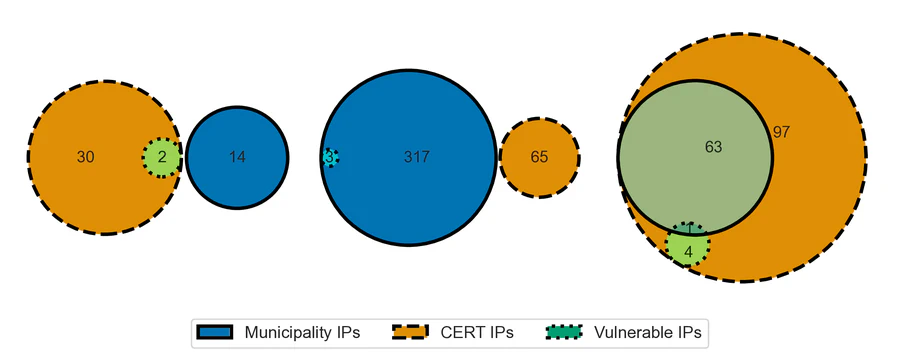
Abstract
Many organizations continue to expose vulnerable systems for which patches exist, opening themselves up for cyberattacks. Local governments are found to be especially affected by this problem. Why are these systems not patched? Prior work relied on vulnerability scanning to observe unpatched systems, notification studies on remediating them, and on user studies of sysadmins to describe self-reported patching behavior, but they are rarely used together as we do in this study. We analyze scan data following standard industry practices and detect unpatched hosts across the set of 322 Dutch municipalities. Our first question is: Are these detections false positives? We engage with 29 security professionals working for 54 municipalities to collect ground truth.
All detections were accurate. Our approach also uncovers a major misalignment between systems that the responsible CERT attributes to the municipalities and the systems the practitioners at municipalities believe they are responsible for. We then interviewed the professionals as to why these vulnerable systems were still exposed. We identify four explanations for non-patching: unaware, unable, retired and shut down. The institutional framework to mitigate cyber threats assumes that vulnerable systems are first correctly identified, then correctly attributed and notified, and finally correctly mitigated. Our findings illustrate that the first assumption is correct, the second one is not and the third one is more complicated in practice. We end with reflections on how to better remediate vulnerable hosts.